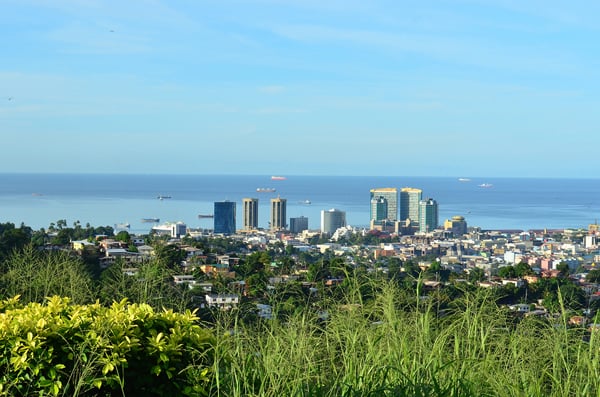Retire in Port of Spain Guide
Summary: If Port of Spain is on your retirement radar, our detailed Retire in Port of Spain Guide is your go-to resource. Delve into the crucial aspects of life here, including living costs, climate, housing options, healthcare services, and residency procedures. We also explore the city's social dynamics, volunteering scenes, transportation, and how walkable its neighborhoods are.

Retiring in Port of Spain is a dream come true for many international retirees. The city offers a unique blend of Caribbean charm, vibrant culture, and modern amenities. The warm climate, friendly locals, and affordable cost of living make it an attractive destination. However, like any foreign country, it also presents its own set of challenges, such as navigating the healthcare system and adjusting to a new culture.
Living Expenses in Port of Spain
The cost of living in Port of Spain is relatively low compared to many Western countries. Housing, groceries, and utilities are generally affordable, although imported goods can be more expensive. Eating out at local restaurants is also reasonably priced, making it easy to enjoy the city's diverse culinary scene.
Climate Throughout the Year
Port of Spain enjoys a tropical climate with warm temperatures year-round. The city experiences a wet season from June to December and a dry season from January to May. Despite the occasional tropical storm, the weather is generally pleasant and conducive to outdoor activities.
Healthcare Facilities
Port of Spain boasts several well-equipped hospitals and clinics, with qualified doctors and medical staff. However, it's advisable for retirees to have comprehensive health insurance as private healthcare can be expensive.
Public Healthcare System
While Trinidad & Tobago has a public healthcare system, it's often crowded and may not provide the same level of care as private facilities. Most international retirees opt for private healthcare or international health insurance.
Residency Options
Trinidad & Tobago offers several residency options for retirees, including a retiree visa. This requires proof of a steady income from a pension or investments. It's advisable to consult with an immigration lawyer to understand the best option for your circumstances.
Recreational Activities
Port of Spain offers a wealth of recreational activities, from exploring the city's historic sites to enjoying its beautiful parks and beaches. The Queen's Park Savannah is a popular spot for picnics, walks, and sports.
Local Cuisine
Port of Spain is known for its diverse food scene, with restaurants serving everything from local Creole dishes to international cuisine. Some popular spots include Veni Mange, a charming restaurant serving Caribbean fare, and Chaud, known for its innovative fusion dishes.
Language Learning
While English is widely spoken in Port of Spain, learning some local dialect can enhance your experience. The University of the West Indies offers language courses for those interested in learning Trinidadian Creole.
Local Culture
Trinidadians are known for their warmth and hospitality. The city has a vibrant cultural scene, with numerous festivals, music events, and art exhibitions throughout the year. The annual Carnival is a highlight, attracting visitors from around the world.
Meeting Other Retirees
Meeting other retirees can be as simple as joining local clubs or participating in community events. The Trinidad & Tobago Expats Club is a great place to start, offering regular meetups and activities for international retirees.
Housing Options
Most retirees opt for apartments or condos in the city center or in quieter suburbs. Gated communities are also popular for their added security and amenities. Some popular neighborhoods include Westmoorings, Maraval, and St. Clair.
Transportation
Port of Spain has a reliable public transportation system, and many areas are walkable. However, having a car can be convenient for exploring the island at your own pace. Taxis and ride-sharing services are also readily available.
Retiring in Port of Spain, Trinidad & Tobago offers a unique opportunity to enjoy a relaxed lifestyle in a vibrant, multicultural city. With its warm climate, friendly locals, and affordable cost of living, it's no wonder that more and more retirees are choosing to call this Caribbean gem their home.
About the Author
 Betsy Burlingame is the Founder and President of Expat Exchange and is one of the Founders of Digital Nomad Exchange. She launched Expat Exchange in 1997 as her Master's thesis project at NYU. Prior to Expat Exchange, Betsy worked at AT&T in International
and Mass Market Marketing. She graduated from Ohio Wesleyan University
with a BA in International Business and German.
Betsy Burlingame is the Founder and President of Expat Exchange and is one of the Founders of Digital Nomad Exchange. She launched Expat Exchange in 1997 as her Master's thesis project at NYU. Prior to Expat Exchange, Betsy worked at AT&T in International
and Mass Market Marketing. She graduated from Ohio Wesleyan University
with a BA in International Business and German.
Some of Betsy's articles include 12 Best Places to Live in Portugal, 7 Best Places to Live in Panama and 12 Things to Know Before Moving to the Dominican Republic. Betsy loves to travel and spend time with her family. Connect with Betsy on LinkedIn.
Additional Information:
- Health Care in Port of Spain
- Discovering the Best of Port of Spain
- Healthcare & Health Insurance in Trinidad & Tobago
- Best Places to Live in Trinidad & Tobago
- Real Estate in Trinidad & Tobago
- Pros & Cons of Living in Trinidad & Tobago
- 10 Best Places for Families to Live in Trinidad & Tobago
- Pros and Cons of Living in Trinidad & Tobago 2025



